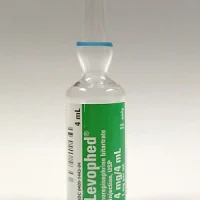A study was conducted to determine whether high dose intravenous sodium selenite treatment and procalcitonin-guided anti-infectious therapy in patients with severe sepsis affect mortality. The findings are published in JAMA Internal Medicine.
Patients with severe sepsis suffer from oxidative stress that could contribute to multiorgan failure and death. The use of intravenous selenium has been proposed as adjunctive sepsis therapy as it restores activity of glutathione peroxidase, attenuates oxidative stress, and improves survival. However, current guidelines do not recommend the intravenous administration of selenium for sepsis due to lack of sufficient clinical evidence.
See Also: Sepsis Clinical Trials - Can Do Better?
The study included 1089 adults who were randomly assigned to receive an initial intravenous loading dose of sodium selenite 1000 μg, followed by a continuous intravenous infusion of sodium selenite,1000 μg, daily until discharge from the ICU. For the purpose of this study, severe sepsis was defined as systemic inflammatory response syndrome caused by infection combined with acute organ dysfunction and septic shock was defined as sepsis in combination with arterial hypotension or need for vasopressor therapy despite adequate fluid resuscitation.
The results show a 28.3 percent 28-day mortality rate in the sodium selenite group as compared to 25.5 percent in the placebo group. No significant difference was observed in 28-day mortality between patients assigned to procalcitonin guidance versus no procalcitonin guidance.
The findings thus show that neither high-dose intravenous administration of sodium selenite nor anti-infectious therapy guided by a procalcitonin algorithm was associated with an improved outcome in patients with severe sepsis.
Source: JAMA
Image Credit: Wikimedia Commons
References:
Bloos, Frank et al (2016) Effect of Sodium Selenite Administration and Procalcitonin-Guided Therapy on Mortality in Patients With Severe Sepsis or Septic Shock. A Randomized Clinical Trial. JAMA Internal Medicine doi:10.1001/jamainternmed.2016.2514
Latest Articles
Sodium Selenite, Procalcitonin-Guided Therapy, Severe Sepsis, septic shock
A study was conducted to determine whether high dose intravenous sodium selenite treatment and procalcitonin-guided anti-infectious therapy in patients with severe sepsis affect mortality.










